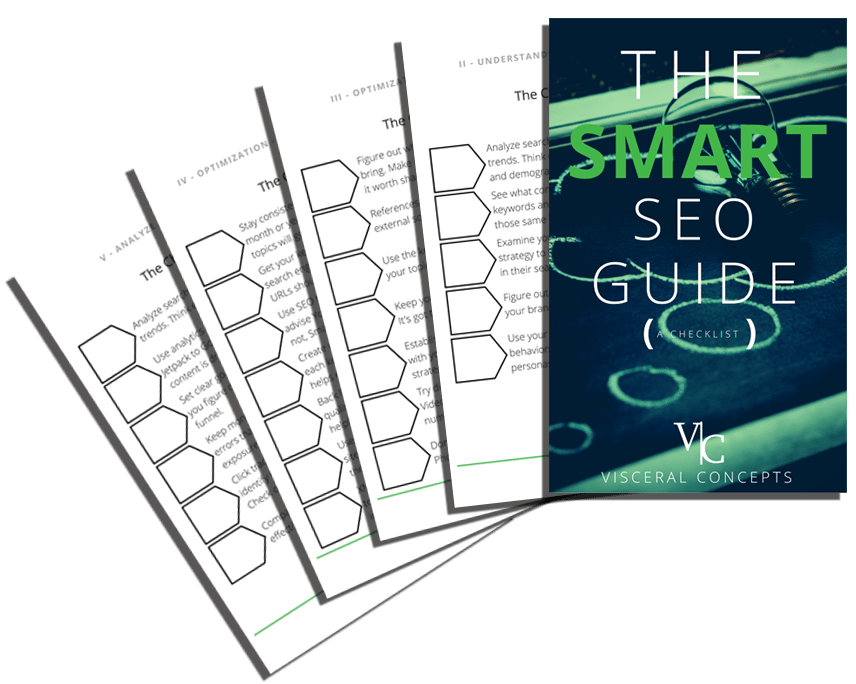Everybody is looking for the SEO secret sauce. It’s been the focus of online marketing since Google became the de-facto way of finding companies on the web. There are so many different things you can do that it often gets confusing.
No matter what you choose to do, however, it might feel like it just isn’t working. That’s because there is a key factor missing in most SEO advice. Provided you ignore the questionable methods, you may see some results just by doing the basics. But if you really want the results, you’ve got to pay attention to the one thing everyone is missing.
Contents
What Exactly Is SEO?
Before we dig into the point of the article, we ought to dig into what SEO really is. You probably already know that it’s the process of getting your website seen by search engines through proper keyword and key phrase placement. You probably also know that there is a ton of behind-the-scenes work you have to do with your website.
But there is a broader idea of SEO. You have to keep your website relevant to the keywords you’ve optimized for. That means producing informative content that will keep your visitors engaged. Your site should constantly have new and updated information about your keywords to help prove to Google that it is staying relevant. Also, it should be structured in a way that gets visitors to engage with additional content, increasing the time they spend on the site. That helps prove to Google that the content actually is relevant.
How Does SEO Fit Into Online Marketing?
SEO is a part of a broader form of online marketing called Search Engine Marketing, or SEM. SEM is all about the different forms of promotion revolving around search. It includes both SEO and SEA, or Search Engine Advertising.
SEA is the paid advertising arm of SEM. It includes PPC ads through Google, Bing, and other search engines. The process is straightforward. Marketers bid for spots on the search platform’s front page, improving their visibility for certain key phrases. Unlike SEO, which is carried out on your individual website, SEA happens on the search platform only.
Both of these concepts fall under the umbrella of SEM, and they both focus on the words or phrases your audience is searching for. Which brings us to the advice.
There Is One Way To Succeed At SEM
There is literally only one way to boost your success in SEM. It comes down to the basic mindset of your audience. After all, they are the ones you’re trying to attract through these processes.
The single way to succeed at anything under the SEM blanket is to understand the way your audience uses search engines. How do they think? Let’s talk about that idea as it relates to both SEO and SEA separately.
Thinking About Optimization
When you begin your online presence, you’ve got to make sure it’s seen. Otherwise, there is no point. When thinking in terms of SEO, you need to do everything you can on your website to drive visitors in through search. That doesn’t include the paid ads, as I noted earlier.
The first thing that matters is your content. You have to write your content in a way that showcases to Google the keywords you want people to find you with. So, when you write, you have to include the phraseology that your target audience might use when looking for your product. Don’t just think about describing what your product is, though. Focus on the problems, needs, or wants that your product fills. Try to think like your target market might when they describe what you do or what they need you for.
Second, you’ve got to consider your page metadata. That might be a foreign concept if you’re not tech savvy. Metadata is the stuff that exists in the code that tells search engines what the page is all about. Typically, it includes a title, meta description, and any related search tags. In most content management systems, there is usually a place to fill this out, even if you aren’t someone who can write code.
This metadata is going to give the search engines more direct information that your content might. Be careful not to do anything that might make Google think you’re trying to abuse the data, though. Tactics like “keyword stuffing” will get you penalized and even blacklisted by Google.
Thinking About Advertising
When creating the paid advertising that fits into SEM, you won’t be looking for page content or metadata. Instead, you’ll be focused on the copy of your specific ad. The text within the ad, as well as the keywords and phrases you purchase, have to match the way your audience might be searching.
If you’re trying to sell an online streaming service, it’s probably not wise to use a phrase like “Stream movies on [company name]!” You’d be better off using phrases like, “Watch [favorite TV show] online!” or “Download 80s movies free!” It’s prudent to buy the keywords that relate directly to your product, but try to broaden what you do by focusing on the reasons that people might need your product.
If You Can Think Like Your Customer, You Win
That’s really the key takeaway. Thinking like your customers will help you maximize SEO – and all of SEM – and drive the best results possible. When launching your site, focus on optimization first. Then, when your budget permits, add SEA and watch your results skyrocket.





